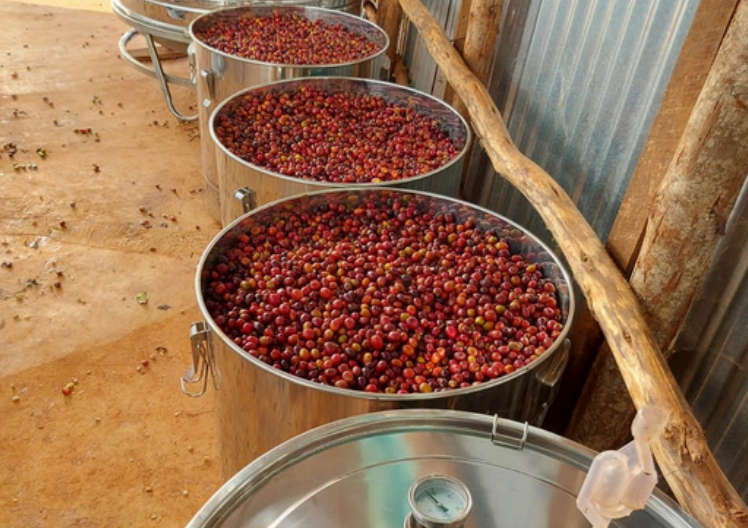Happ Coffee Roasters
Ethiopia Worka Sakaro Anaerobic Natural
Ethiopia Worka Sakaro Anaerobic Natural
Couldn't load pickup availability
Roasters notes:
This beautiful Ethiopian coffee comes to us through our friends at Balzac Brothers in Charleston, SC. We first tasted it at the SCA Expo in Houston this past April, and it instantly stood out—a clear yes for our menu.
What makes it special? It starts with the classic dried blueberry aroma that’s signature to coffees from the Worka Sakaro region. But it doesn’t stop there. You’ll also catch notes of red wine and blackberry jam, adding depth and character without being overwhelming. The cup opens with a bright, hibiscus-like acidity, then smooths into rich, jammy sweetness. A sweet, floral finish lingers just long enough to make you want another sip.
This is a versatile, easy-drinking coffee that performs well across brew methods. It’s smooth and balanced on drip, shines in an AeroPress, and turns into something truly special as espresso—showing off its fruit-forward complexity and syrupy texture.
Whether you're new to Ethiopian coffees or already a fan, this one’s a great pick. It's approachable, expressive, and a great example of what makes this region so loved.
Importer's notes:
Worka Sakaro Washing Staion is located in the Gedio Zone. The washing station works with over 400 smallholder farmers in the region. These farmers grow their coffee on the steep mountain slopes at approximately 2,000 to 2,200 meters above sea level. The coffee is grown in the shade of Birbira, Corsica Africana, and Ensete Ventricosum trees. The coffee is picked when the cherries are ripe and then dried on raised beds for 18 to 21 days. Once the coffee is dried it is then milled to remove the husks and stored in a local
warehouse before being transported for final processing before shipment. This lot follows suit with the wave of groups now experimenting with various methods of anaerobic processing. It follows all the same steps as a typical naturally processed coffee, except after the coffee is floated, it is placed into special plastic bags, flushed with carbon dioxide and nitrogen gas, and monitored over 3-7 days until fermented adequately (this varies based on mucilage content and environmental conditions). Once the cherries reach the desired pH and color, they are removed from the bags and transferred to drying tables to complete the process.






